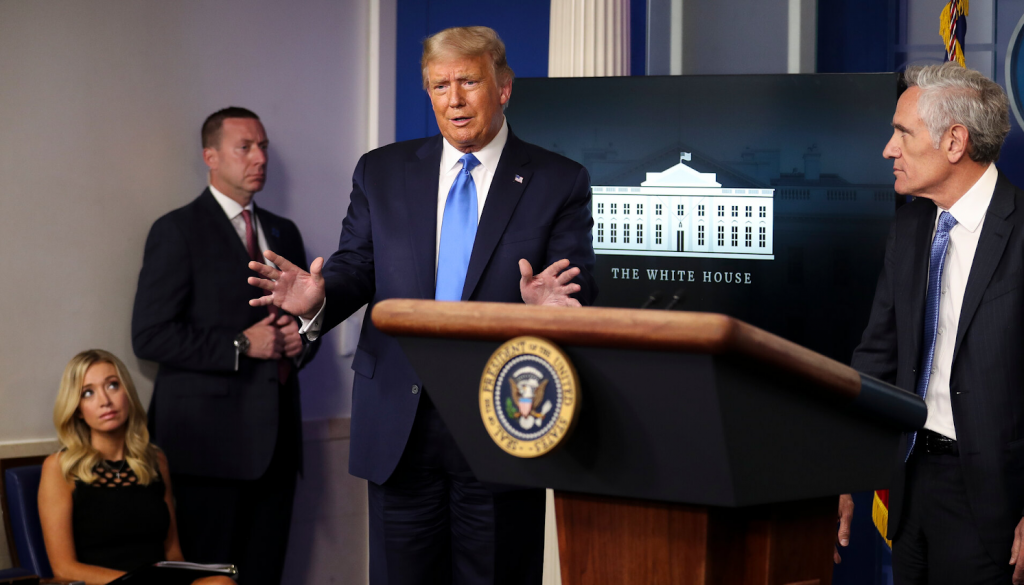Over the last few weeks, US President Donald Trump has expressed his unwillingness to accept the results of the 2020 presidential election if they are not in his favour.
At a press conference on Sept 23, a reporter asked the president if he was going to commit to a “peaceful transfer of power” after the elections. He replied that he would make his decision according to “what happens”. He then further suggested that there could not be a peaceful transfer of power as long as ballots were in place and that there will only be a continuation.
These statements are consistent with those where Trump expresses his lack of faith in the mail-in ballots and suggests that he will refuse to step down from office if he loses the elections.
In this regard, some questions deserve to be raised. Does Trump possess the means necessary to provoke a constitutional crisis to stay in office? Moreover, what is the Republican strategy behind spreading the narrative that the elections are rigged?
Despite showcasing the authoritarian attitude of a typical “strong leader”, Trump lacks various elements to lead a successful coup.
Firstly, he lacks power over the media, as outside of Fox News prime time, he faces an unremittingly hostile press whose major outlets have thrived throughout his presidency. For instance, a 2017 Pew Research report found that 62 per cent of stories involving Donald Trump during his first 60 days in office had a negative assessment while 5 per cent of stories had a positive assessment, which is a stark contrast with his predecessors.
Additionally, he is despised by the military leadership, due to the populist and unilateral military orders he gave, such as the recent retreat in Afghanistan. In fact, several directors of national intelligence, secretaries of homeland security and national security advisers have resigned during his mandate.
Finally, in addition to the lack of a mass movement behind him, Trump does not totally own the trust of his own Supreme Court appointees, who have ruled against him in the past, notably in the two cases of Trump v. Vance and Trump v. Mazars USA. Specifically, the Supreme Court ruled that Trump’s tax records should see the light of day.
Thus, besides being able to contest the election results if he loses by a small margin, Trump is pretty much powerless in today’s context.
Then, why would Donald Trump threaten to stay in office in the case of a defeat on Nov 3?
Daniel Pfeiffer, Senior Advisor to President Obama for Strategy and Communications, said: “Democrats and Republicans have very different paths to the White House.” Democrats depend on turning out new and less frequent voters while Republicans want lower overall turnout because their base is smaller but has more reliably frequent voters.
He deduced that all this talk about coups and frauds is designed to “convince people that their votes won’t count, and their voices won’t be heard”.
Democrats’ panicked reactions may thus be reinforcing the Republican strategy by giving credit to the possibility of a coup. Republicans want the least possible people to vote and target potential Biden voters who supposedly already have little faith in the American electoral system.
The way Democrats react to Trump’s statements is, therefore, essential. Anat Shenker-Osorio, a strategic communications consultant, advised all Democrats and partisan media against Donald Trump “to not merely describe his actions but ascribe motivations to them” within a frame that reinforces the Democrats’ project for the nation.
Instead of treating Trump as a strong authoritarian leader, it is thus in the interest of Democrats to spread the image of a “weak loser” who is trying not to lose at all costs.



